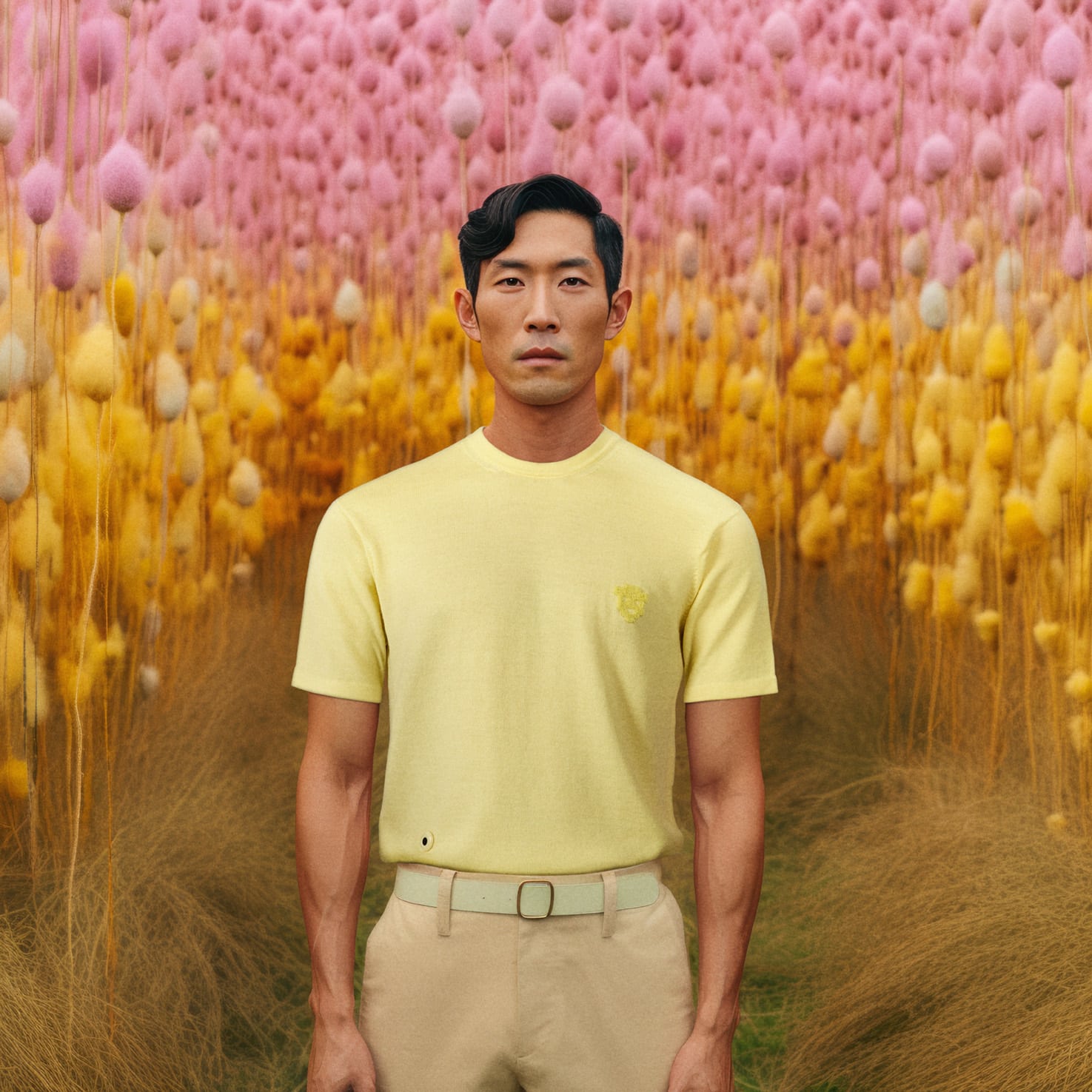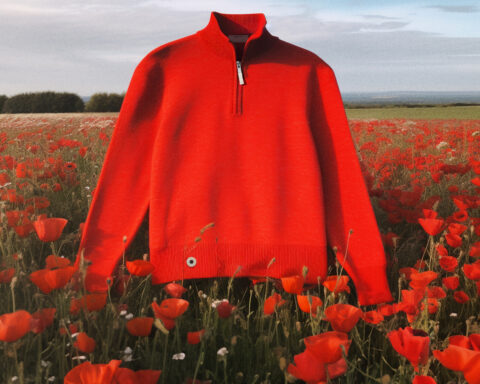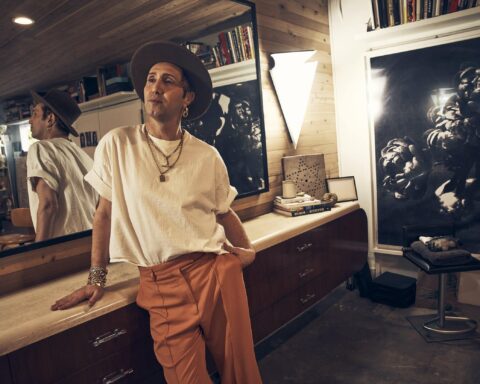Changing the way we create and consume clothing could have a drastic and felt impact on the environment — the question is, though: what does creating a more sustainable fashion industry actually look like? What does it really mean for a brand to actually be sustainable? It can feel daunting as a consumer; wading through dozens of Instagram ads all promising that their sweaters, their shoes, their skincare, are putting the planet first — how are any of us supposed to know who really means it?
That’s where we come in. Welcome to Mr Feelgood’s directory to shopping sustainably.
We’ve compiled a list of brands that we’ve used expert insight to vet, so that you can shop with confidence. In a market that’s saturated with promises of eco-friendly practices, it can be hard to cut through the noise, but these are brands that walk the walk and deliver what they claim.
Shopping with any of the brands below means a guarantee that you’re being a conscious consumer — but if you’re trying to figure out if a brand’s sustainability claims hold water you can also visit our Sustainability Guide with expert insight and a Glossary of terms to help you make informed shopping decisions. (And be sure to bookmark this link because we’ll continue to add brands as we discover them.)
Brand Directory:
Community Clothing
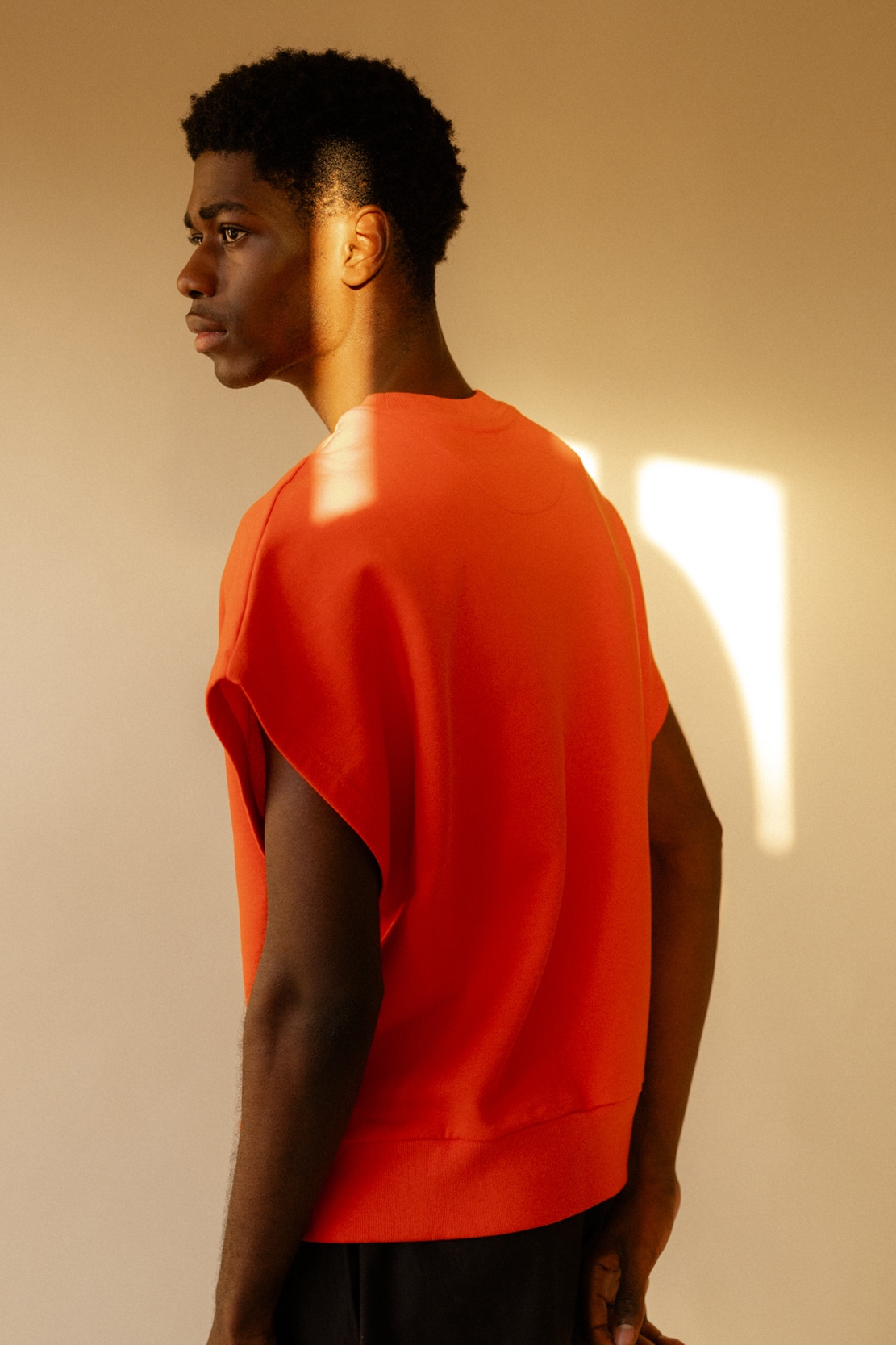
Community Clothing started with a simple mission: to use local employment to create high quality goods — it just so happens that this is the most sustainable way to make clothing, they found. To create their range of mens and womenswear they assess the entire lifecycle of every fabric and fiber they use. This means taking into account everything from the environmental impact of the growing process and the intricacies of production like dyeing and finishings, to the lifespan of the clothing once it’s out of their hands: how long will it last? Can it be recycled or reused when a consumer is done with it?
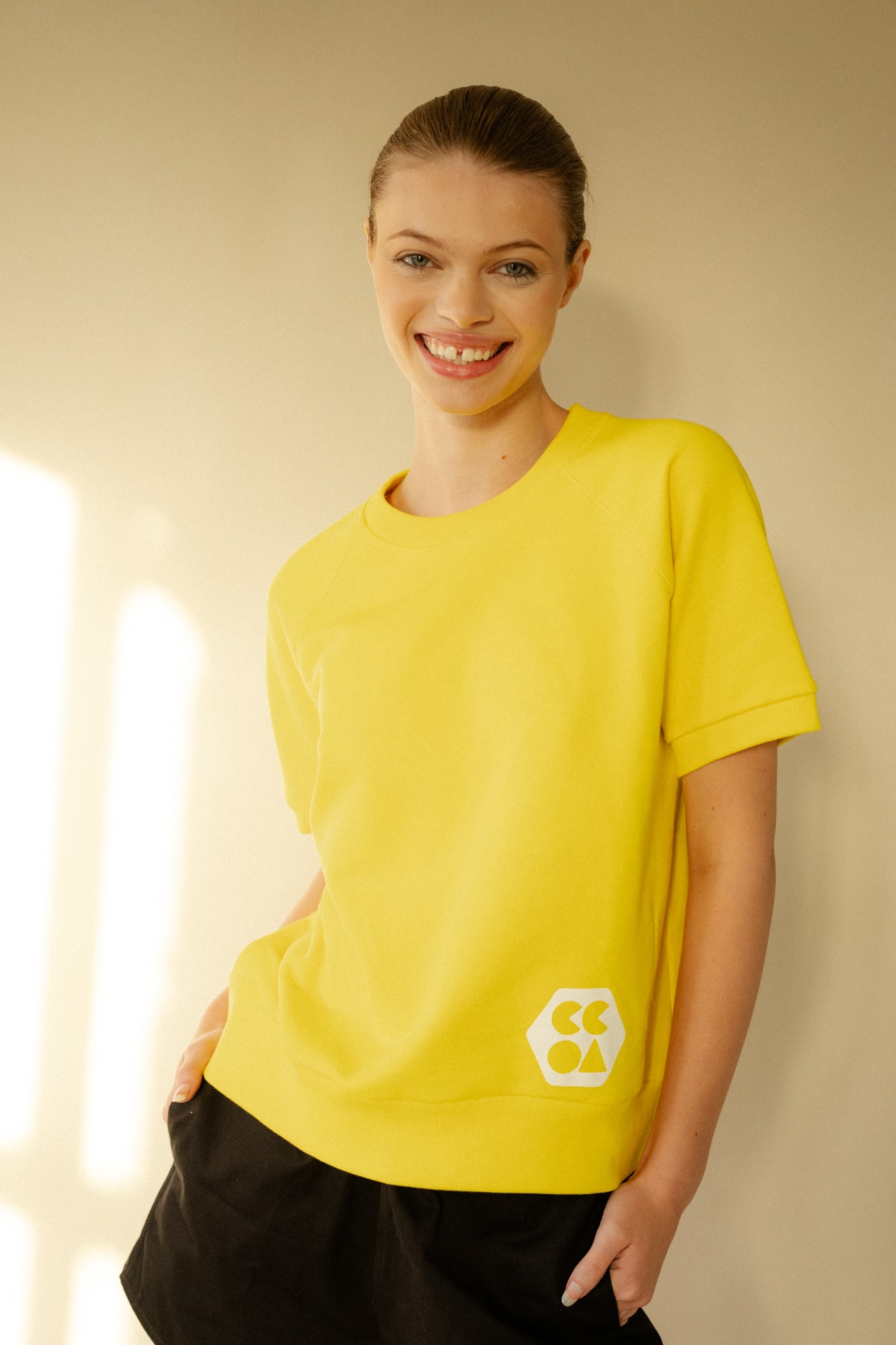
“We use only the finest quality natural materials. We use almost exclusively wool, linen and cotton in our clothing because we believe that they offer the very best combination of wearability and overall environmental impact,” says founder, Patrick Grant. As a result, Community Clothing is not simply a brand that happens to be sustainable — it’s defined by its sustainability; as a principle, everything they do revolves around it. And for Grant, it’s personal. “Nature has always played a big part of my personal happiness,” he tells Mr. Feelgood. “Many of the things I enjoy most in life involve spending simple time in our beautiful wild places.”
Up next for the brand? That’s simple: more factories, more jobs, and more sustainable clothes for everyone. And that begins with their latest venture: sustainable sportswear. The brand recently launched a line of athletics made using plant-based textile technology — a massive departure from the majority of modern sportswear, which is made from non-biodegradable oil-based synthetic plastic materials, principally polyester, nylon, polyurethane and elastane.
Patrick’s Favs: “If I am not in a suit, I’m wearing head to toe Community Clothing. I wear the socks (the sports socks and the walking socks), the field trousers (I have a few colors) and the new cameraman pants, and the t-shirts year round. In spring and autumn I throw on the sweatshirt, and in the winter I wear the lambswool crew neck sweater.”
Neem
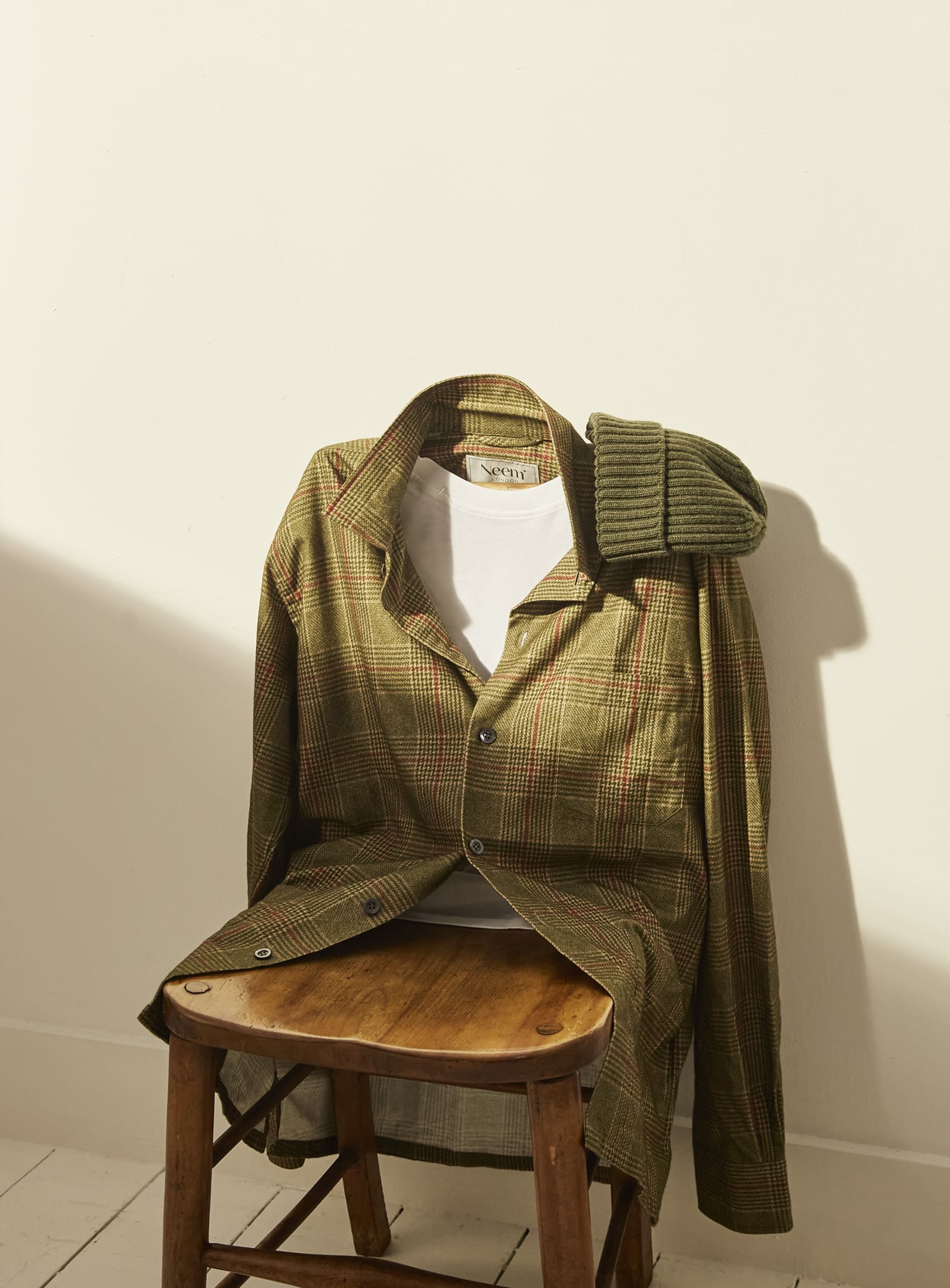
Nick Reed has seen it all: that’s why he founded Neem. After decades working for top menswear brands — watching consumerism outrun environmental concerns, a shift toward synthetic, man made fibers, and finally witnessing firsthand the wasteful way retailers treated manufacturers during the pandemic, he had had enough. Neem, at its heart is a decarbonized fashion label where low emission values have been hard coded in from day one. Reed and his team researched everything from the growing and manufacturing of the fibers used to create their clothing to how to make packaging and shipping materials more sustainable.
Three main principles run through the Neem brand: only working with fibers that can be recycled; only working with manufacturers that are fully or proportionally operated by clean energy, and finally their innovative take back system. Neem customers are offered cash or store credit starting nine months after their purchase which incentives less waste and allows Neem to then recycle or repurpose clothing to extend its lifespan.
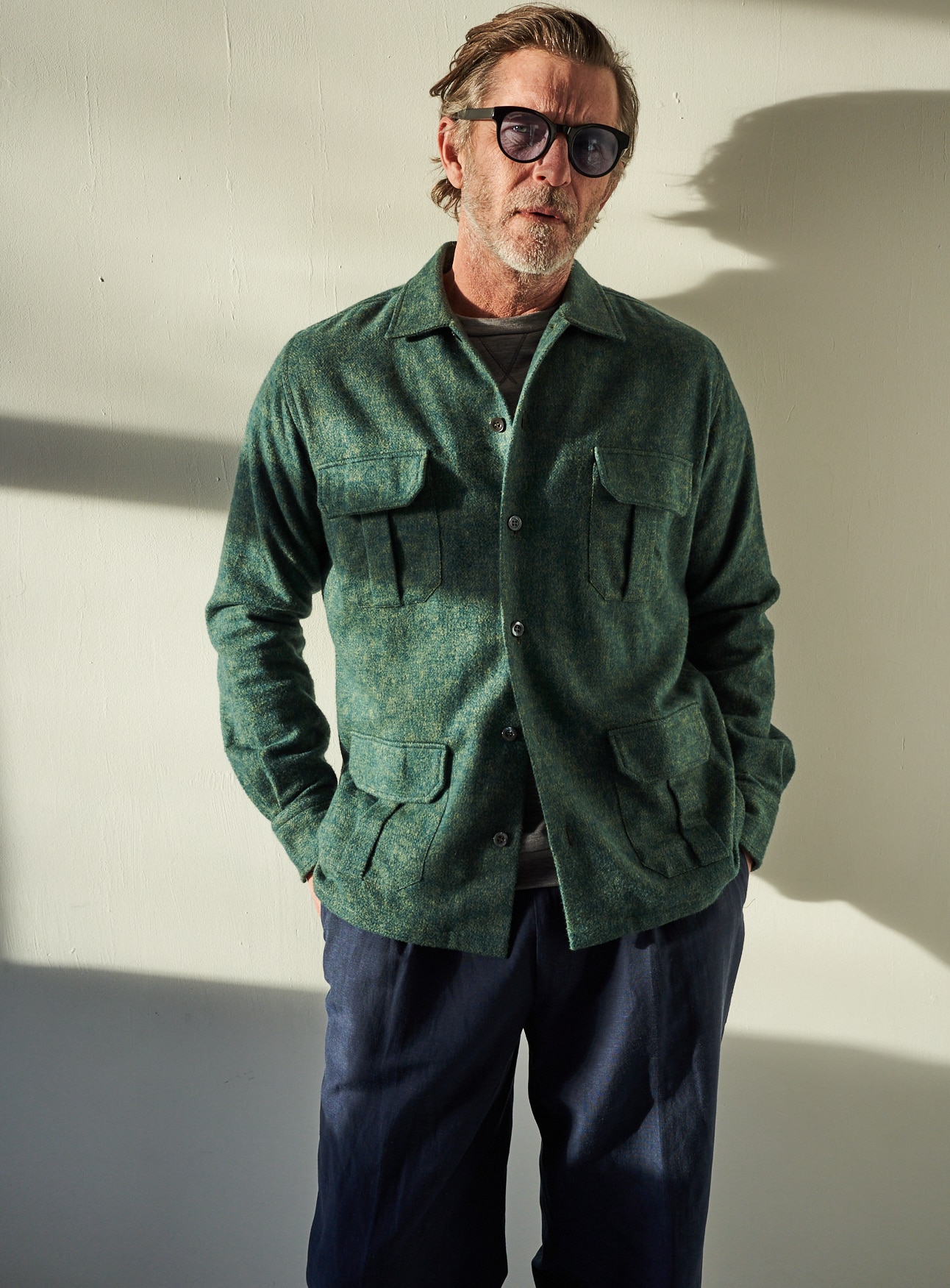
“We lead with style,” Reed tells Mr Feelgood. The brand creates elegant basics for men, everything from Merino t-shirts to refined overshirts that can easily be dressed up or dressed down. And this stylish appeal is reflected in their consumer demographic: while Reed estimates 20% of Neem customers are advocates or academics in the sustainability space, the rest are men looking for stylish, timeless pieces that are comfortable and easy to wear and maintain; the fact that they’re getting a product that can be traced all the way back to the seed it grew from might not be top of their mind, but they get an education simply by being a consumer which is a win-win for the brand.
Nick’s favs: Our Merino T-shirts as base layer are all year product because they’re, they’re thermo regulating and act as a brilliant base layer in the winter, and then are breathable and odor repelling and dirt resistant in the summer. And then they don’t need any ironing. But, the main thing is our overshirts really, because they can be worn all year, dressed up like a jacket or dressed casual as a shirt. The model that I particularly like at the moment is the one called the St. James. (Read Mr Feelgood’s profile of Nick here.)
Sheep Inc.
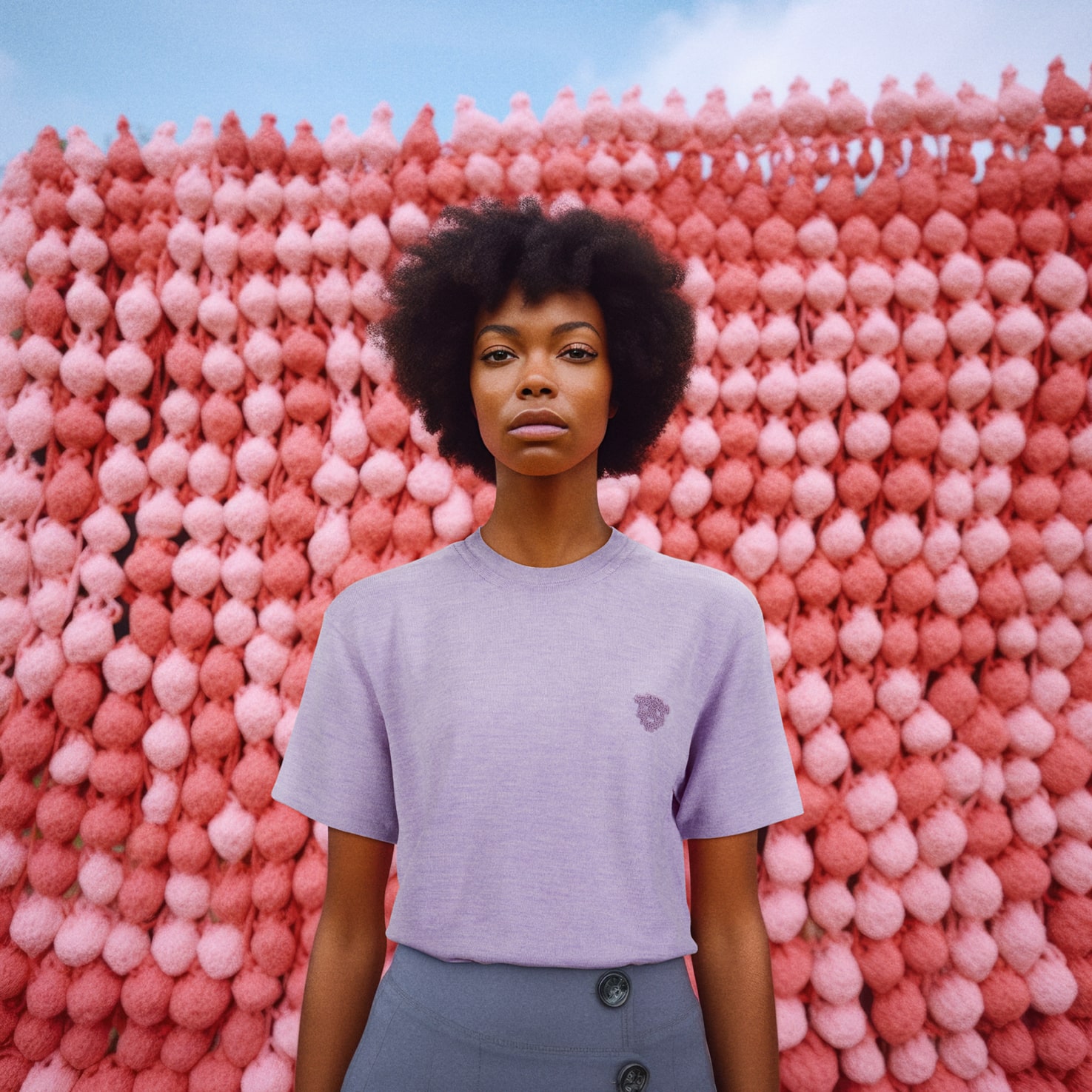
Sheep Inc. uses cutting and proprietary technology to create knitwear with a carbon negative impact; it starts by using cutting-edge regenerative farms and supply chain partners that run on 100% solar power. Garments are created using Shima Seiki Wholegarment® machines that run on 100% solar power — and the brand employs supply chain technology that gives real time insight into the process behind each garment, right down to the sheep a piece of knitwear came from.
Founders Michael and Edzard see sustainability not as a choice, but as the future. “Without a serious shift in direction, we’re in serious trouble,” they tell Mr Feelgood. Both experienced veterans of the fashion industry, they say their decision to found Sheep Inc. came not from a single aha moment, but a constantly unfolding understanding that the fashion industry was creating an environmental footprint that was too much for the planet to bear. “Influenced by both the majestic simplicity of nature and the complex web of our global ecosystem, we were inspired to create a brand that mirrors the balance between the two.”
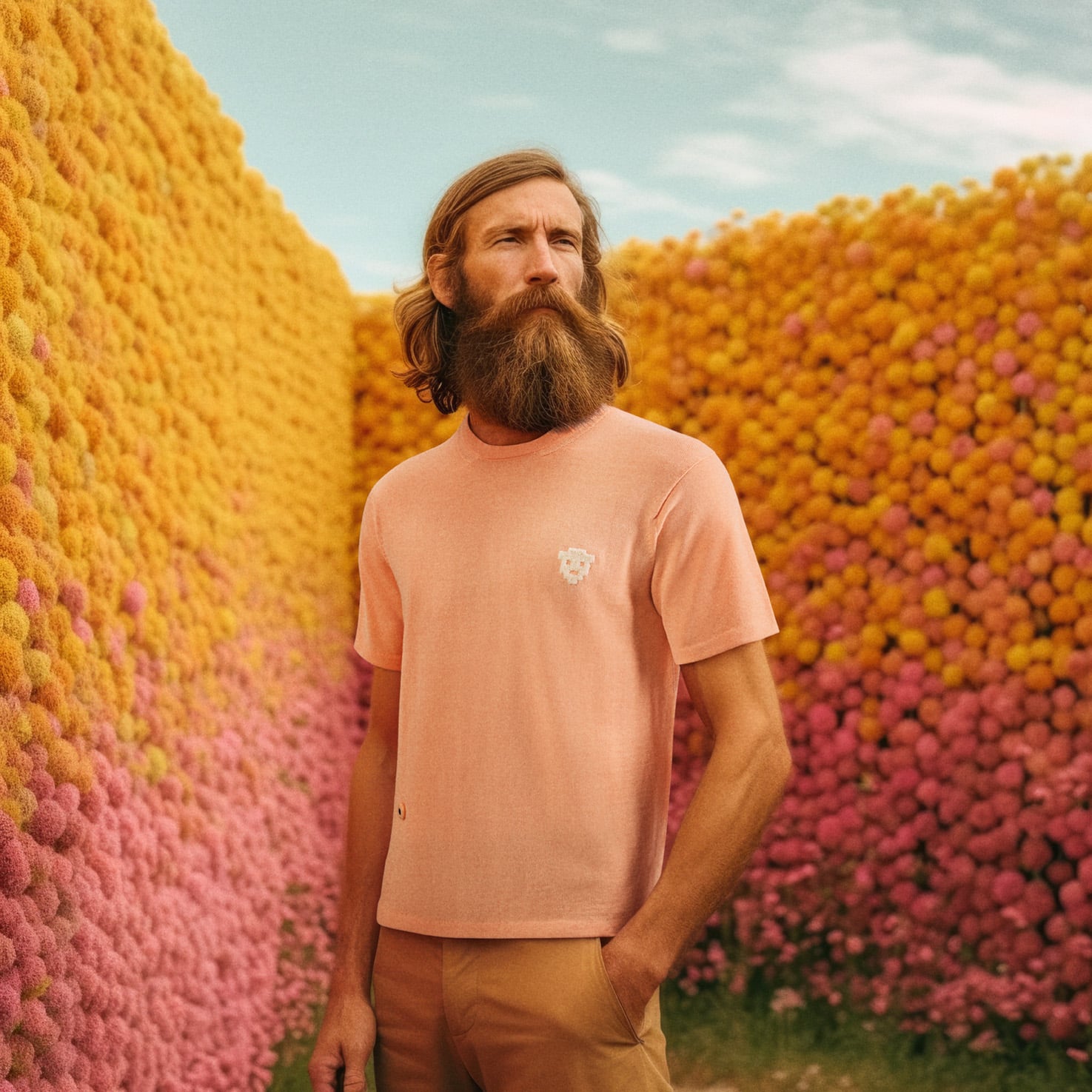
To found the brand, the pair went through a rigorous research process — developing ways to prioritize sustainability at every moment of production and wear. They also have a repair service for customers and use a circular fashion model that encourages garment recycling; that being said, all their knitwear is made from completely biodegradable fibers so it will never contribute to textile waste. For Sheep Inc. words like sustainable and eco-friendly aren’t labels on adverts or campaigns to attract environmentally conscious customers; instead the brand itself is a love letter to the intricacy and delicacy of creating high quality products the right way — one that they hope will inspire others. “Our dream is to not only expand our product line but also to inspire a global shift towards sustainability that transcends fashion, influencing lifestyle choices across the board,” they say.
Michael and Edzard’s Favs: We love everything about running this business. On the product front, The Sheepscape Crewneck, with its playful nod to our woolly friends and commitment to sustainable fashion, is something we’re really proud of. It represents everything our brand stands for: innovation, sustainability, and a dash of whimsy.
The Avantguard
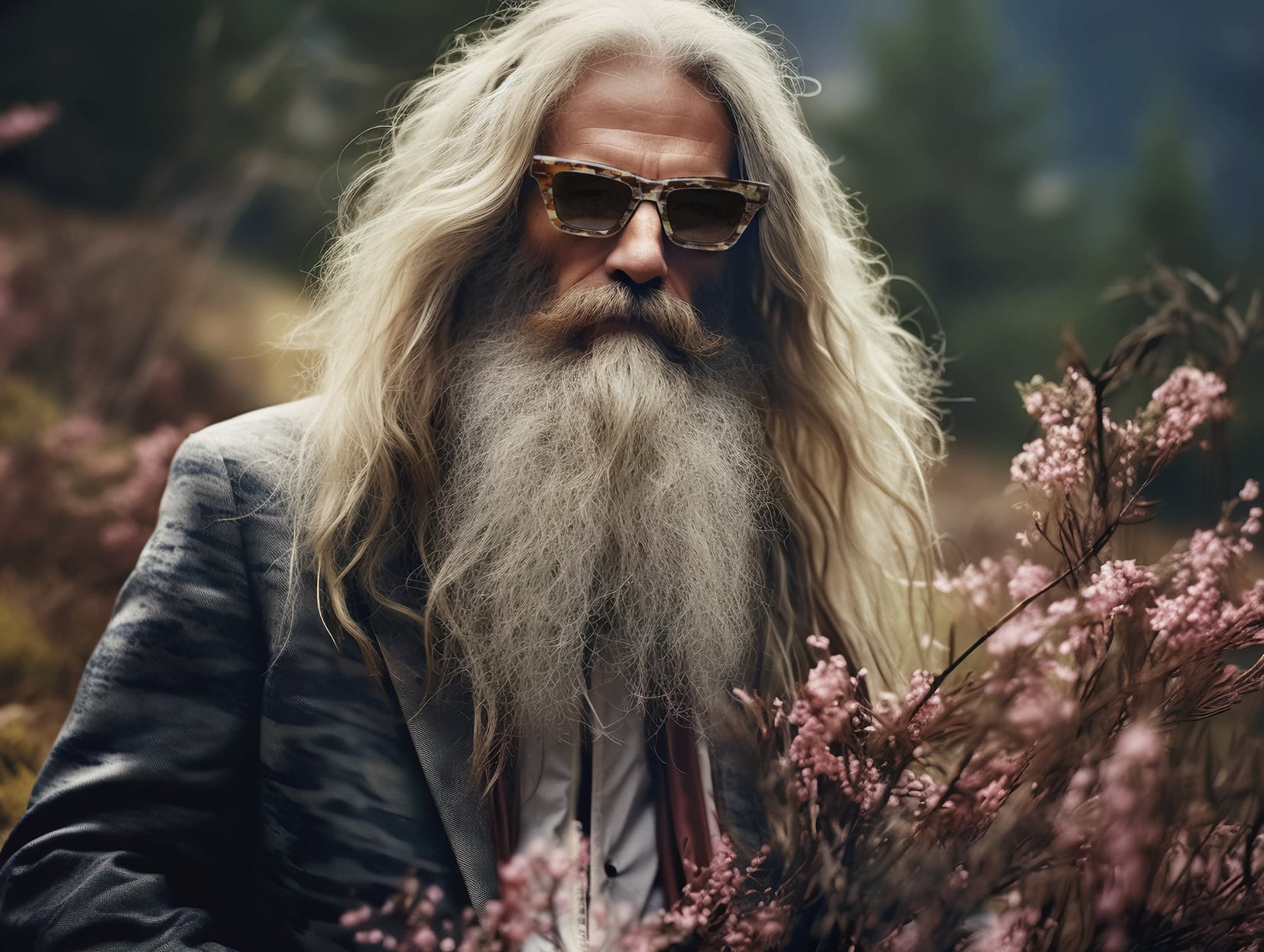
“The only way forward is sustainable,” says The Avantguard Eyewear founder Faiza Seth. That’s the very simply why at the heart of his sustainable eyewear brand. In recognition of the fashion industry’s status as one of the largest global polluters, The Avantguard creates sunglasses that prioritize the health of both the environment and the consumer. They do this a few key ways: avoiding harmful chemicals and opting for natural and recycled materials; creating durable eyewear built to last in an effort to reduce excess consumption, and by creating eyewear that is not only sustainable — but fashionable as f***. Each frame boasts a luxury attention to detail, comfort and design.
Their Rewilding collection is a plant-based eyewear range — yes, you read that right, plant-based eyewear. You see, commonly, acetate eyewear are made from plastics; instead what Avantguard has done is opted to work exclusively with cellulose bio-acetate, produced from cotton and wood pulp fibers, using renewable sources. “The Bio acetate is 100% biodegradable meaning that it can be degraded in carbon dioxide, water, methane, mineralised in organic salts and new substances therefore being returned to nature,” says Seth. “This process circulates the resources back into our planet, truly achieving sustainable development.”
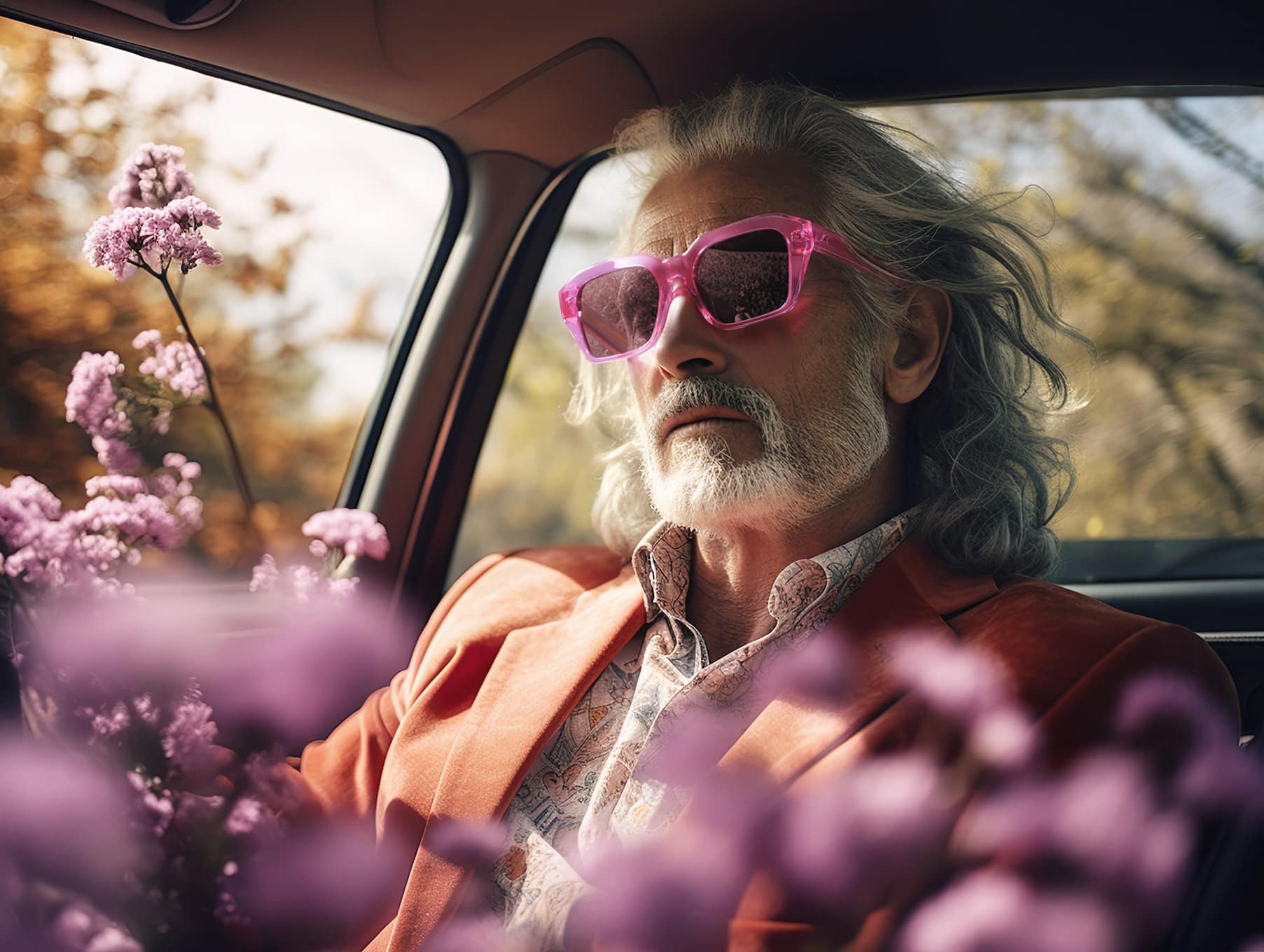
The brand also utilizes small batch manufacturing, family run factories, and local employment. They prioritize quality over quantity; creating 300 piece batches for each of their available styles and therefore reducing excess stock becoming waste. All of this achieves an overall lower carbon footprint — in style.
Fazia’s Favs: “I love wearing the Celosia Sandstone Tort because the pearly look of the biodegradable acetate elevates this cat-eye into jewelry for the eyes. I also love the Neroli in midnight gloss because it’s an extremely flattering frame for all face shapes and the super glossy finish adds such a sleek and beautiful effect.”
Wax London
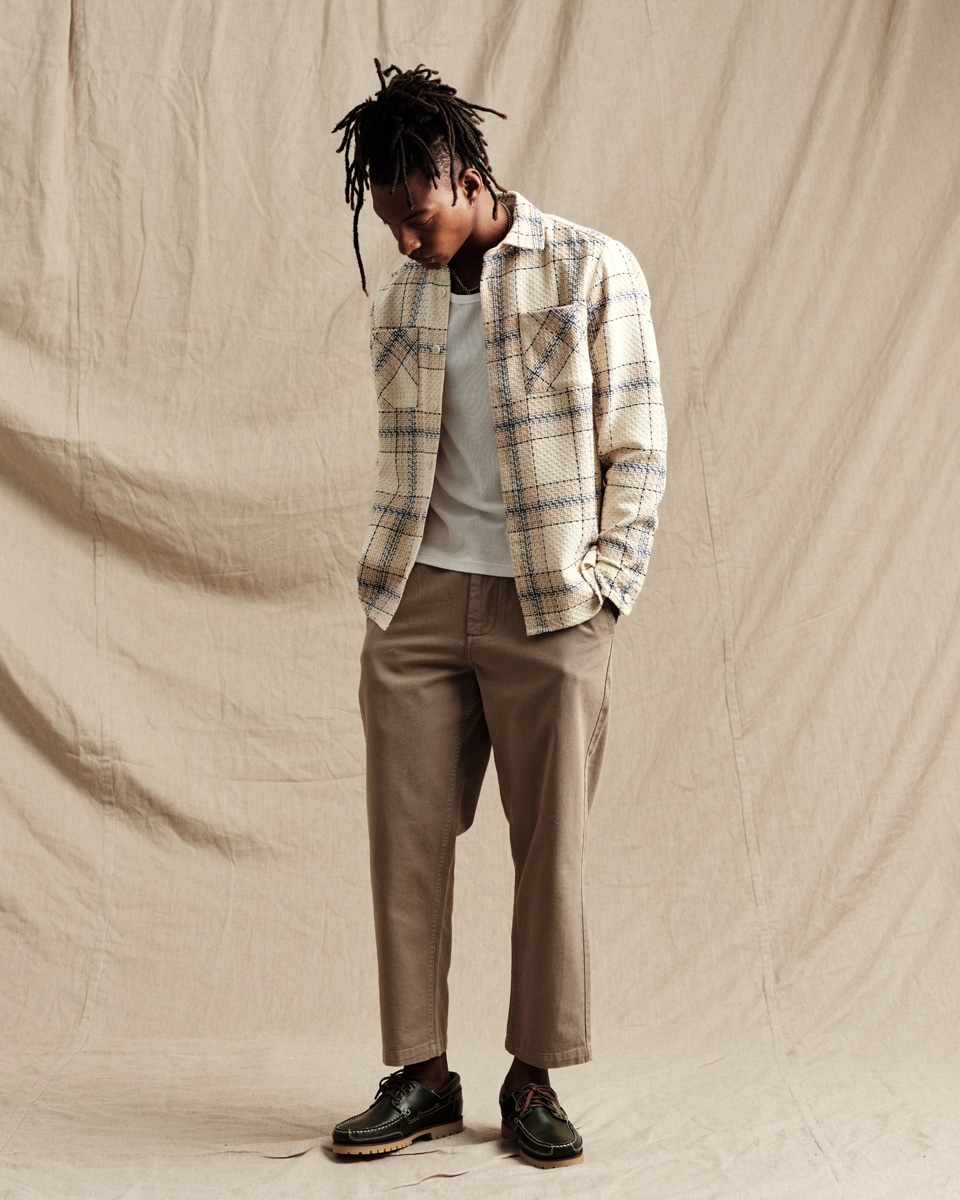
Wax London founder’s dedication to sustainability started at a young age, watching his grandmother take a needle and thread to mend clothing instead of purchasing something new. The brand, which was founded in 2014 says its sustainable practices were not so much of a conscious decision as they were the only way they could conceive of doing things. They focus their efforts on two primary areas: working with raw materials across every aspect of their supply chain, and how they treat their staff, and manufacturing communities. “It’s really important to us that we treat people how we would like to be treated ourselves, and that has at times been at the expense of better margins or other business centric decisions,” creative director and co-founder Tom Holmes tells Mr Feelgood.
Aesthetically, Wax London is a perfect mix of timeless staples and more stylized pieces; with everything from classic knitwear to beautifully embroidered shirts, they pride themselves on having something for everyone. Using a slow fashion approach, the brand makes pieces that are made to last working with high quality fabrics and thoughtful construction practices. A majority of all the materials that go into Wax London’s wares are organic or recycled; even the buttons are made from a natural biodegradable material. The brand acknowledges the wave of greenwashing plaguing fashion and says that even with its commitment to sustainability, it wants to continue doing better. “We know that a product-lead business can’t be 100% sustainable,” they say. “Instead we use sustainability as a guideline to regularly assess where we are and where we can get to, then use that to refine our processes.
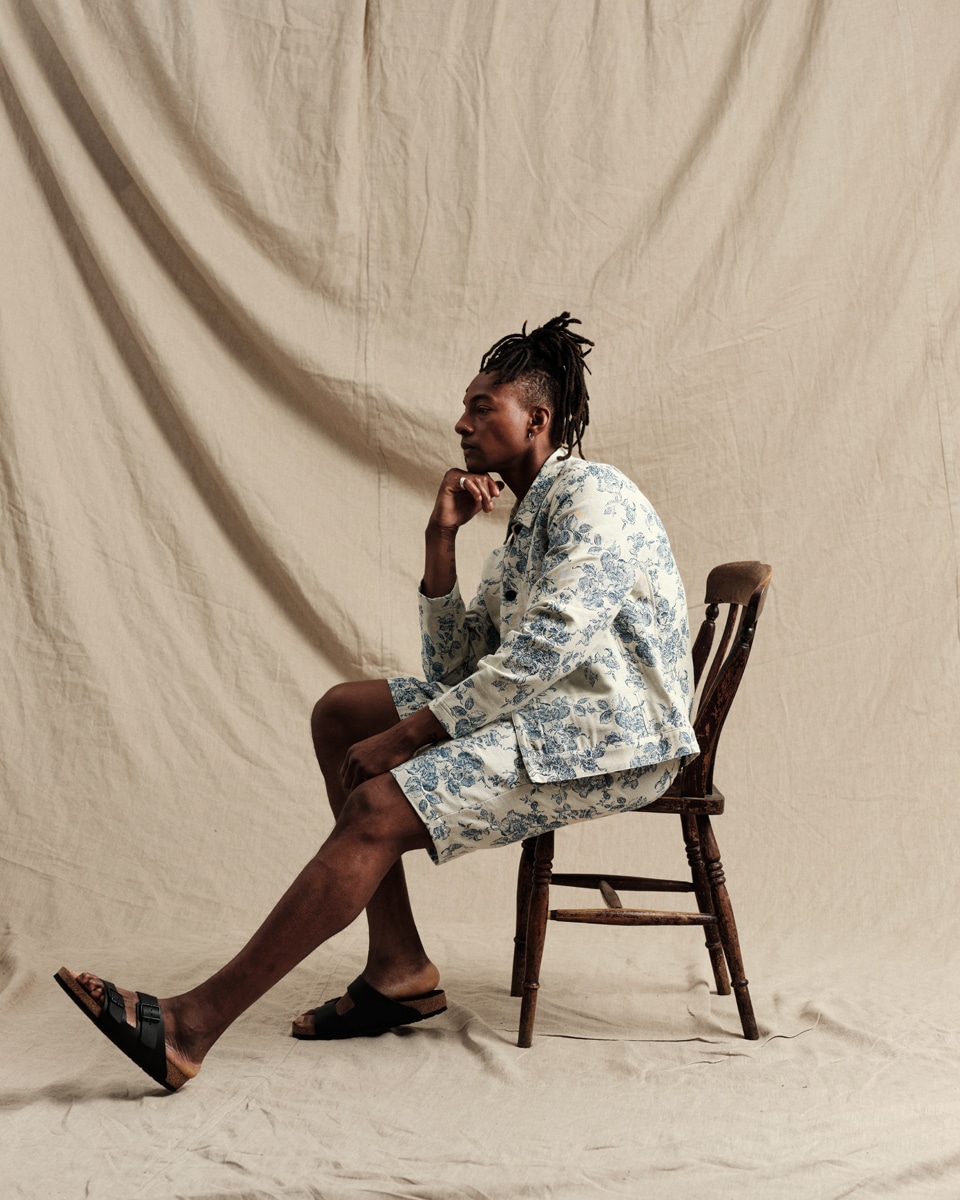
Holmes’ Favs: “We have a few stand out products and it’s evolved over the years. I think it’s clear to any fan of the brand that our signature is the Whiting Overshirt (named after my grandad). The whiting has been a cornerstone of the brand for a few years now, but we have expanded into other categories and are becoming known for our shirting in general. This season, we are expanding our tailoring offering with some great Linen and Seersucker suits that we can’t wait to release.”


